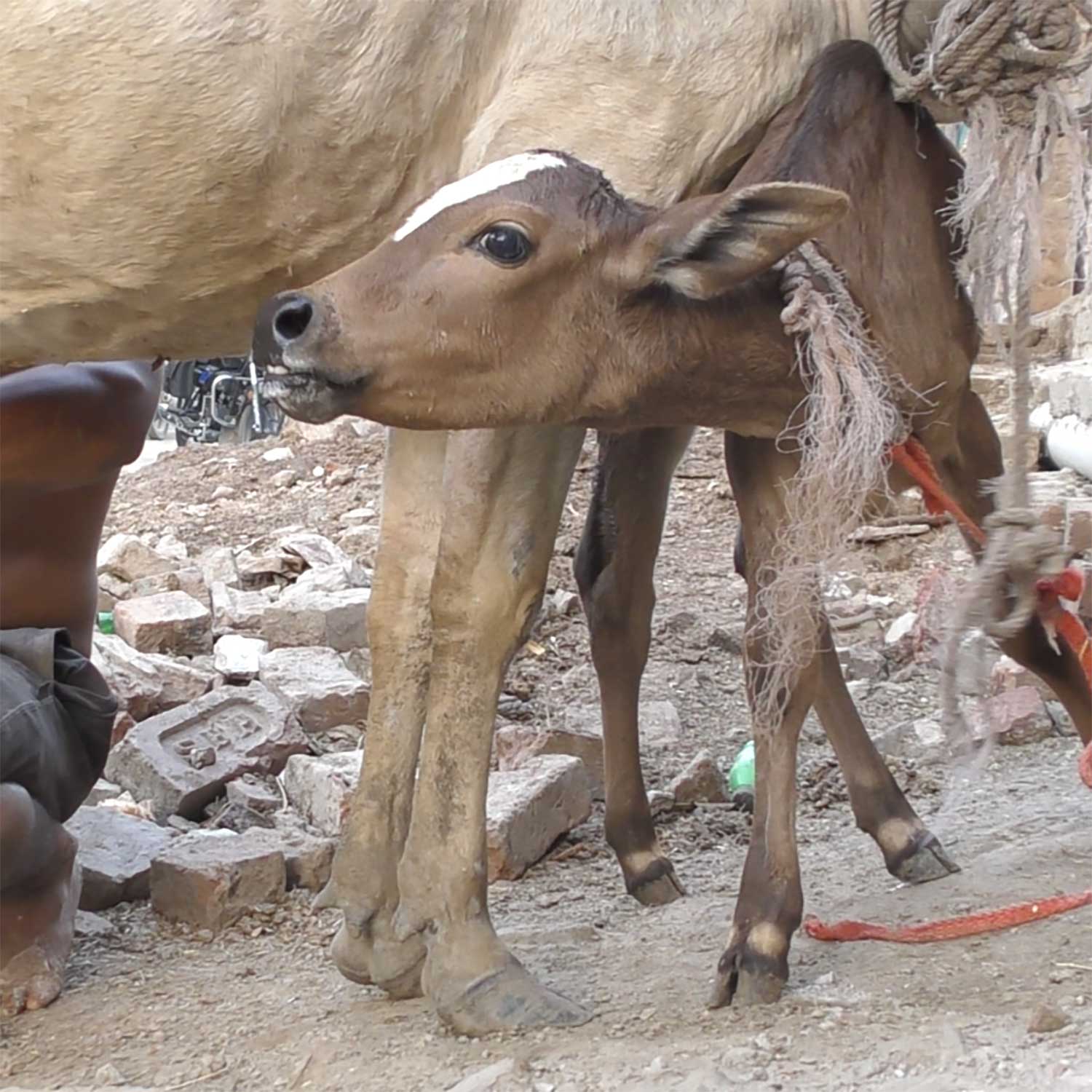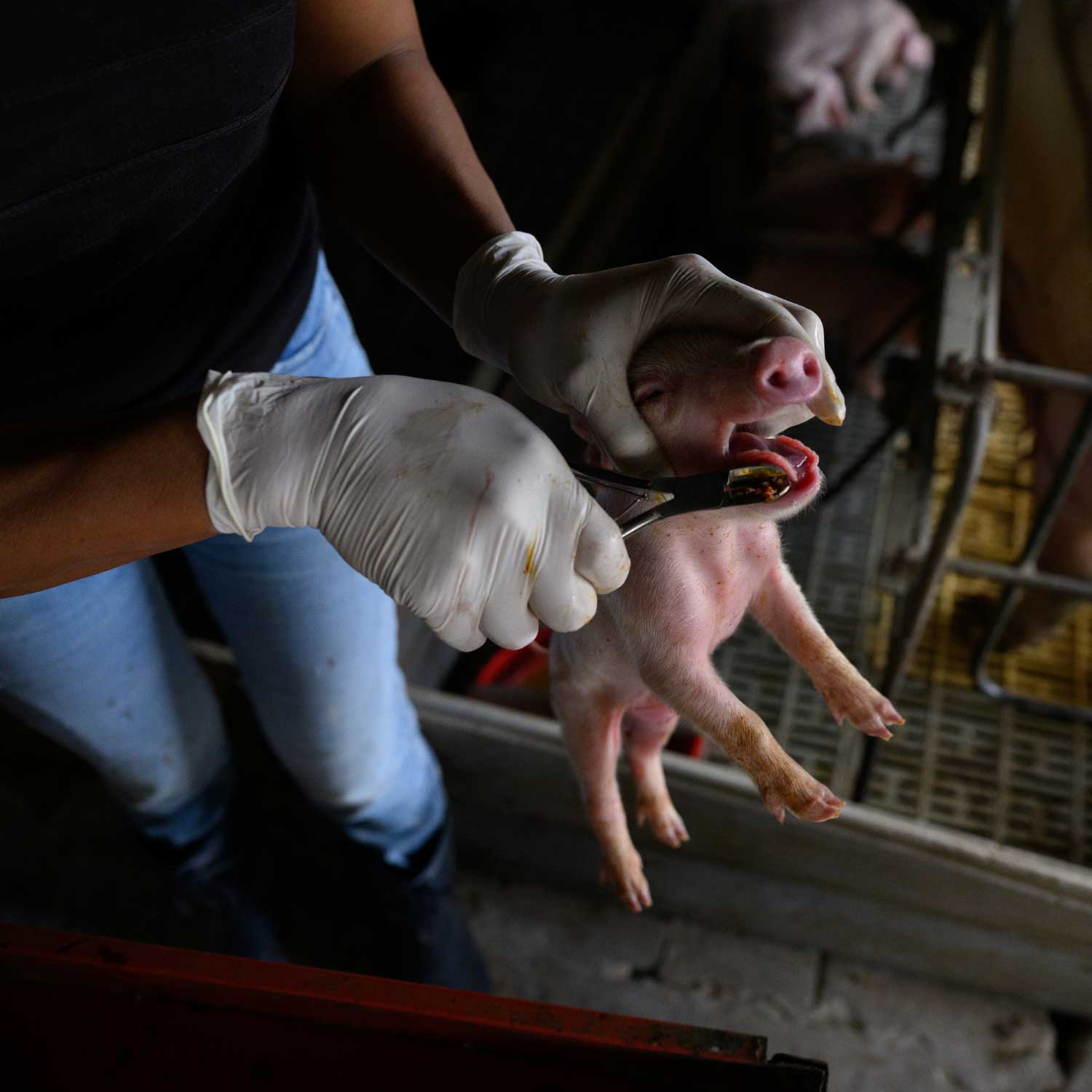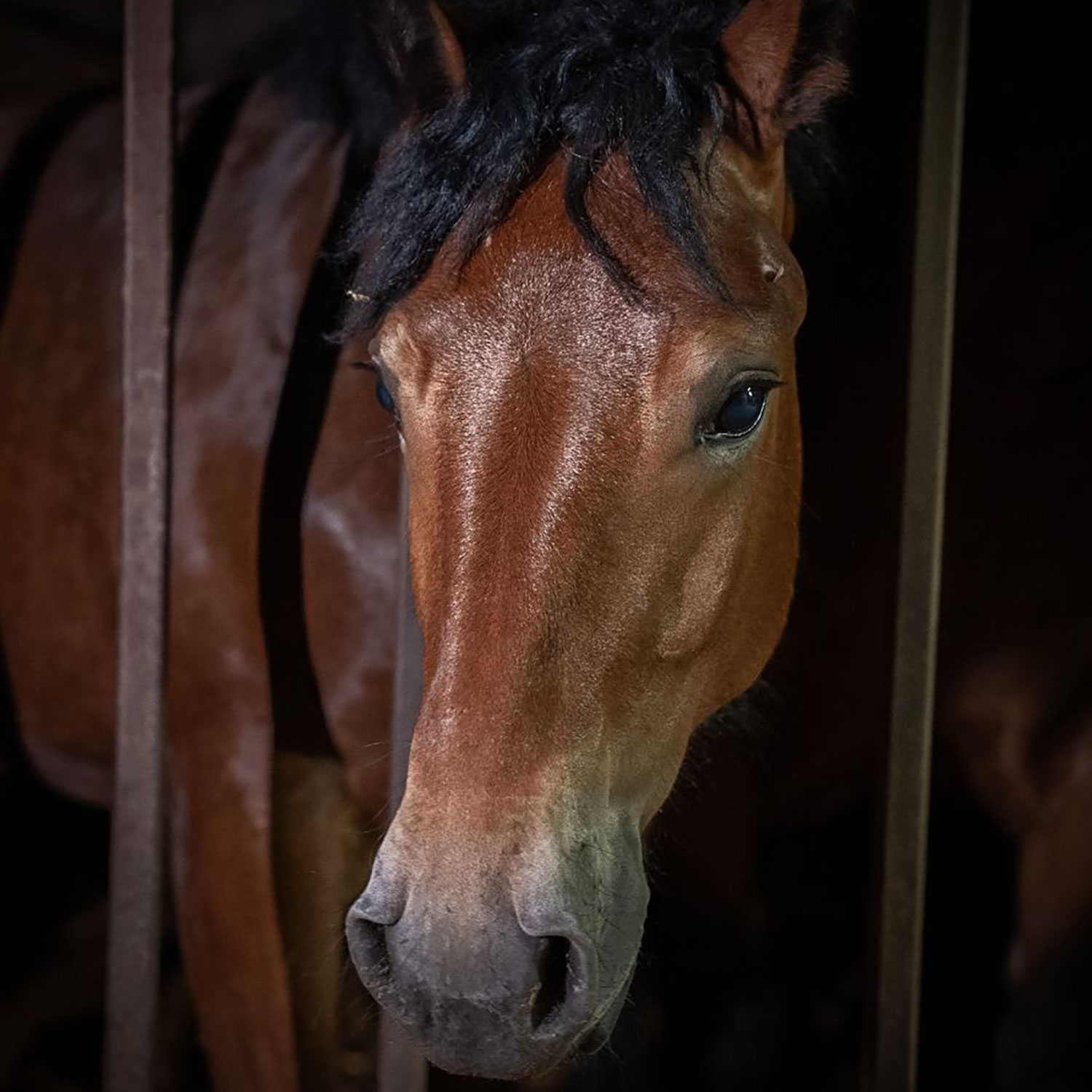Animal Equality urges UK government to better protect fish
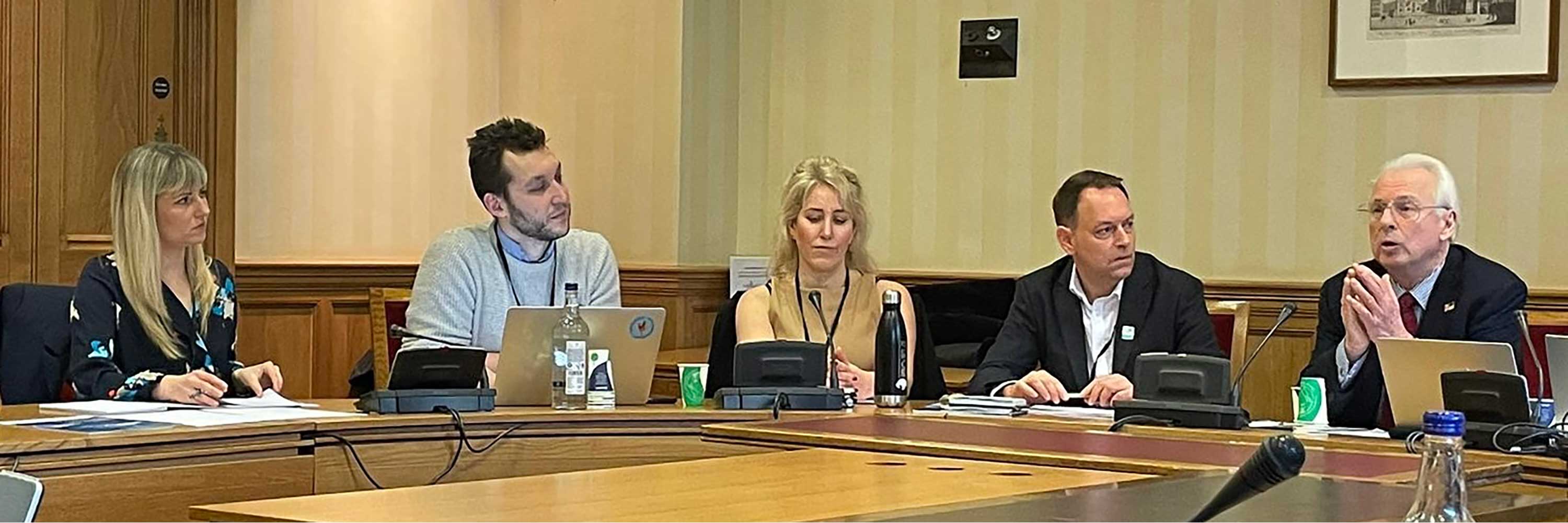

On Wednesday, January 24, Animal Equality took a stand for farmed fish in the UK Parliament. Abigail Penny, Executive Director of Animal Equality UK, was invited to a roundtable discussion to speak alongside leading retailers, industry experts, lawyers, and fellow animal advocates. Penny stressed the need for better legal protections for farmed fish at the time of slaughter.
This event follows another roundtable discussion in July 2022, in which Animal Equality participated. Since then, Animal Equality’s team has spoken with Government figures and even participated in a private consultation coordinated by the Animal Welfare Committee (AWC).
In the private consultation, the AWC shared a formal Opinion with the Department of Environment, Food & Rural Affairs (DEFRA) based on Animal Equality’s key recommendations:
- Mandatory stunning at slaughter;
- CCTV in fish slaughterhouses;
- Increased training, oversight and inspections of slaughter employees;
- Increased monitoring and reporting of cleaner fish mortalities;
- And legal penalties for non-compliance.
A year after delivering this Opinion to DEFRA, Animal Equality and fellow advocates are still waiting on the UK Government to confirm its plan to implement these recommendations.

What was discussed during the roundtable?
The objectives of the Parliamentary meeting were:
- To show decision-makers that key stakeholders share a concern for the well-being of farmed fish;
- To persuade government officials of the importance and urgency of enacting this legislation as soon as possible;
- And, to agree on what the next steps will be.
All three of these objectives were achieved. Key players across the board – from allies in the animal protection movement to the industries they’re normally fighting – agreed that progress is critical.
Though not present, Salmon Scotland, the voice of farm-raised Scottish salmon, provided a statement showing its support:
We acknowledge the absence of dedicated legislation in this area and are fully committed to support the development of any such legislation as and when it is established in the future.
–Salmon Scotland
Solicitor and Co-Founder of law firm Advocates for Animals, Edie Bowles; Sean Black, Senior Scientific Officer (Aquaculture) at RSPCA; and fish expert Mark Borthwick persuaded key decision-makers of this legislation’s genuine importance. They explained why these recommendations need to be enshrined in the law.
Solicitor Edie Bowles pointed out that “the industry code is silent on how to meet the specific legal requirements, and even if it did provide this guidance, it would not be enforceable as it simply isn’t official.” She emphasized how it would “bring clarity and consistency” and that it “helps avoid conflicts of interest, which is inevitable when regulation is left to billion-pound industries.”
Meanwhile, expert Mark Borthwick made an impassioned speech stressing the urgency of the situation for the approximately 210,000 fish killed each day that the government delays taking action.
At present, clubbing a fish’s head passes as a stunning technique […] Fish are delivered by a pipe to the slaughter machine, where they are clubbed, and their gills are cut. If this fails, a worker grabs a club and chases them around the facility while they flap and gasp to club them to death.
Imagine if we delivered cows to slaughter by a vacuum tube that throws them into a machine which they can enter backward or upside down, which I’ve seen happen plenty of times. Their belly is clubbed instead of their head, their back is cut instead of their neck, and a worker has to grab a club and beat them to death.
[The law] simply wouldn’t allow that to happen to a cow. So why let it happen to fish?
–Mark Borthwick, OOCDTP Doctoral Fellow and fish expert
Scientists have overwhelmingly concluded that, much like land animals, fish are thinking and feeling individuals capable of experiencing pain, pleasure, and fear. That’s why it is so disturbing that the UK doesn’t have any species-specific laws in place to better protect farmed fish in their final moments of life, especially since tens of millions of fish are slaughtered in the UK every single year.
And, what limited protections exist for fish facing slaughter exist only on paper. There has never in UK history been a single prosecution for farmed fish-related breaches of slaughter legislation.
What are the next steps for fish?
The discussion closed with the organizer of the roundtable, Lord Trees, concluding, “It’s clear that we need to close this legislative anomaly” and reminding the audience that “enforcement is also key.” Ticking off the final objective, the panel initiated plans to consolidate the meeting points in a letter to the devolved governments to stress that these urgent issues must not be sidelined.
At Animal Equality, there is no intention of slowing down, and we will be calling on DEFRA to provide a roadmap and timeline for enshrining this legislation in law. Animal Equality has also secured coverage in The Grocer for the event, amplifying public awareness around the plight of farmed fish, adding to our tally of over 90 media stories we have generated on behalf of fish over the past year.
Take action!
By replacing fish and other animal products with ethical, affordable, and delicious plant-based options, we can improve our food system for people and animals.
Fortunately, starting a plant-based transition is easier than ever. With a plethora of options lining grocery store shelves and countless recipes accessible online, millions of Americans have already joined the plant-based movement.
Visit Love Veg to start your life-changing journey, and rest assured that lives will be spared because of your compassionate choice.
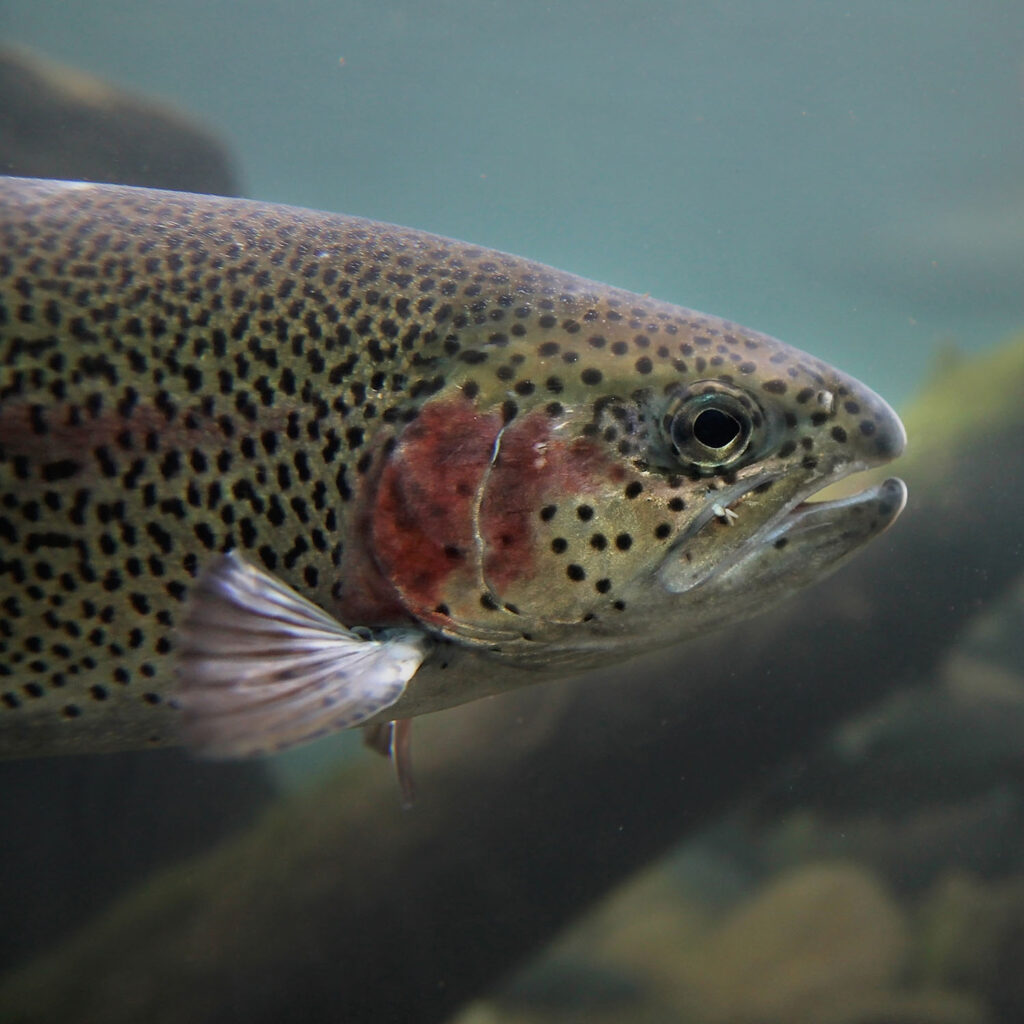
DEFEND FISH FROM ABUSE
Scientists confirm that fish have rich emotional lives and the capacity to feel.
Protect these sensitive beings by choosing plant‑based alternatives to animal food products.

